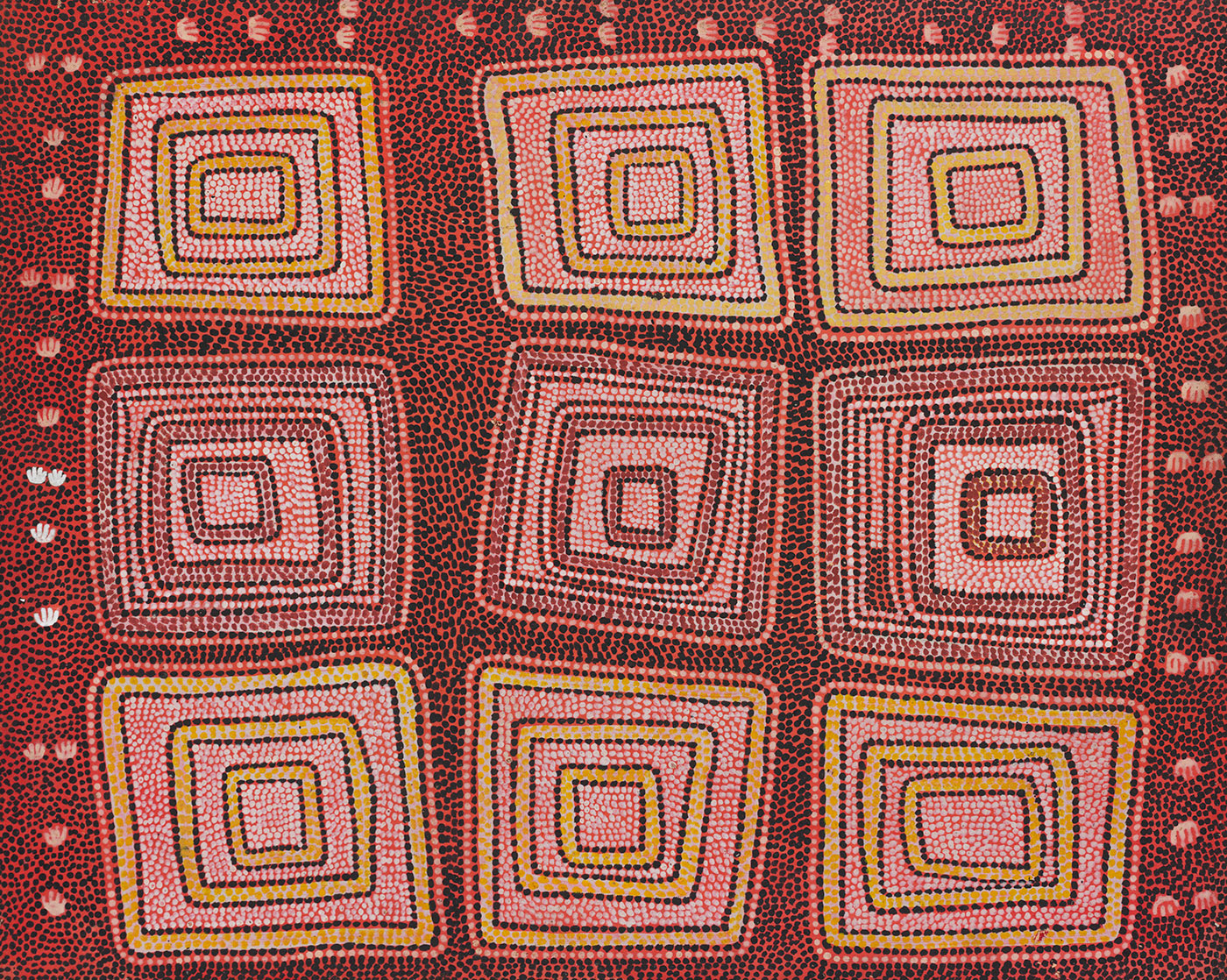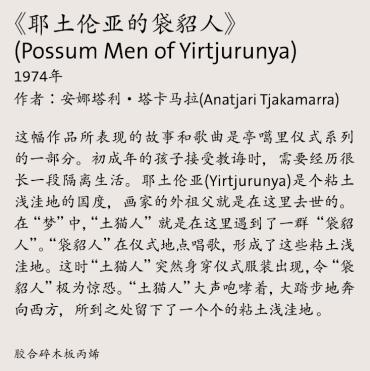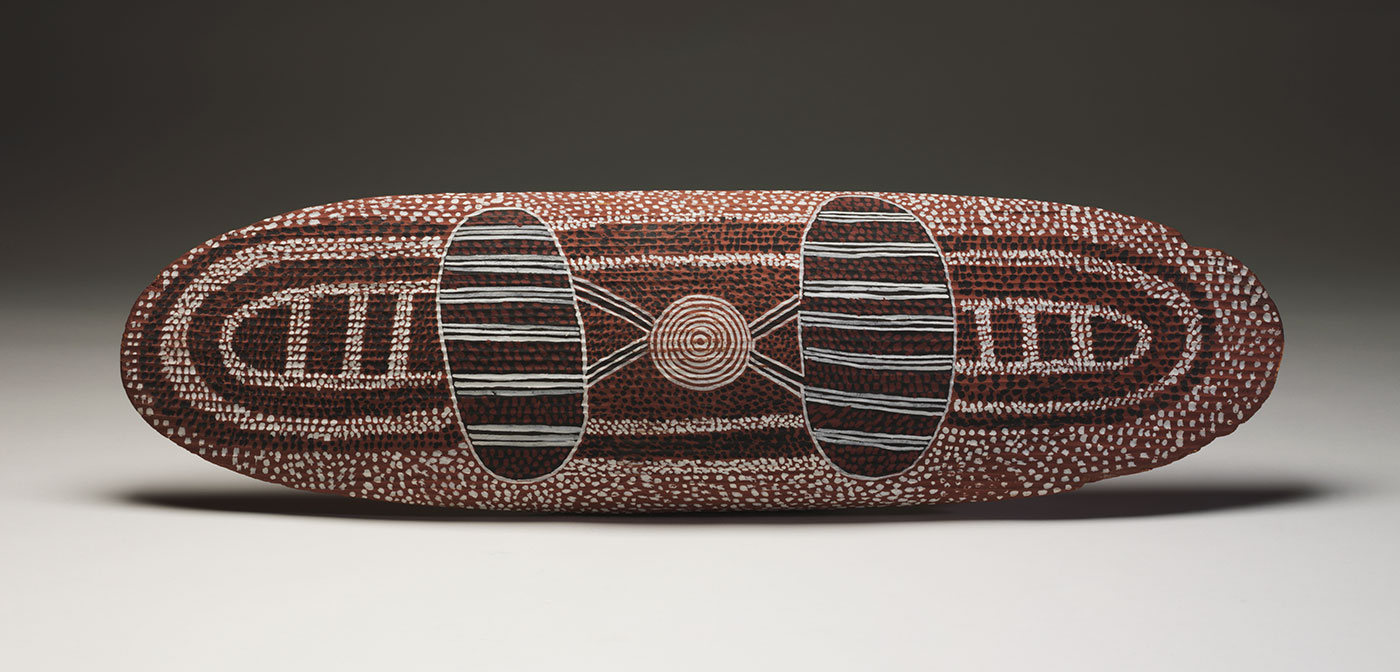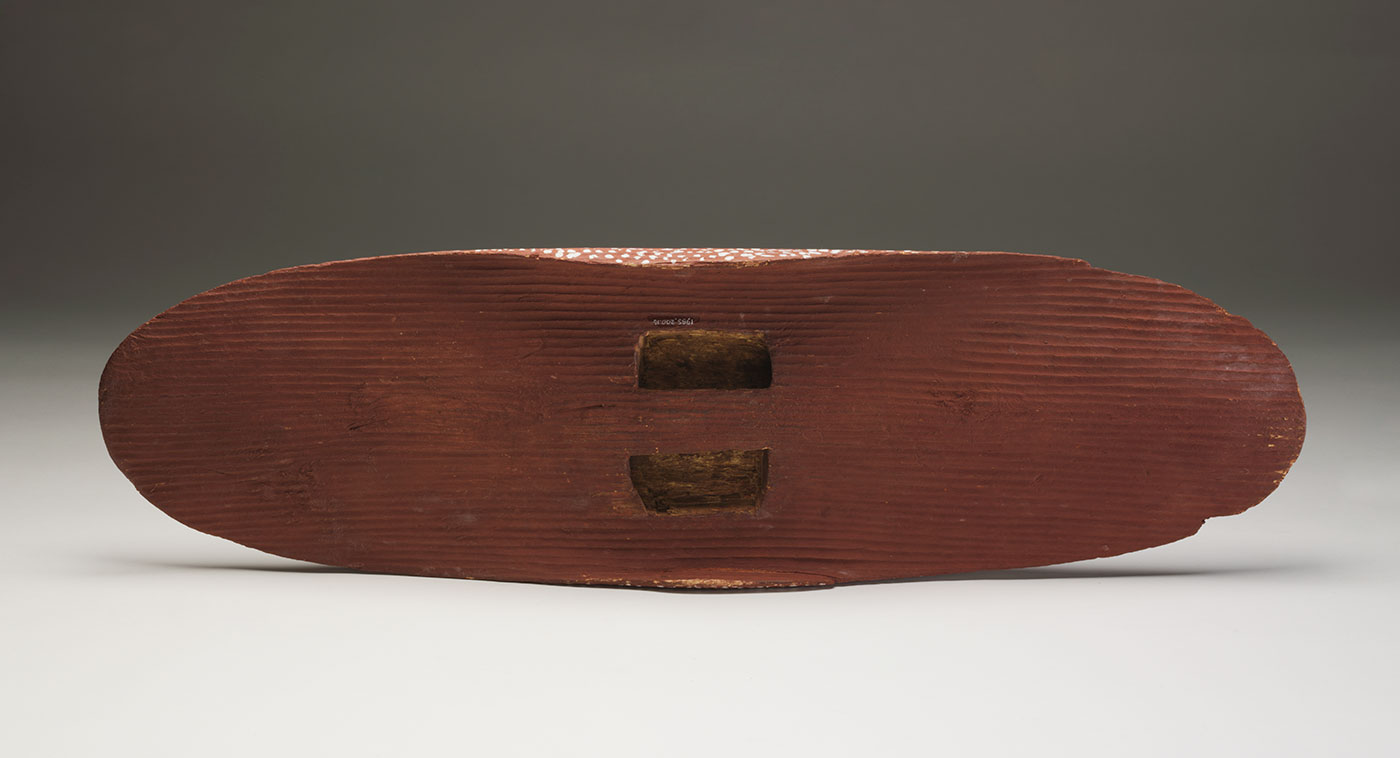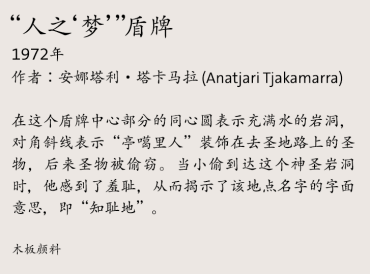Pintupi people
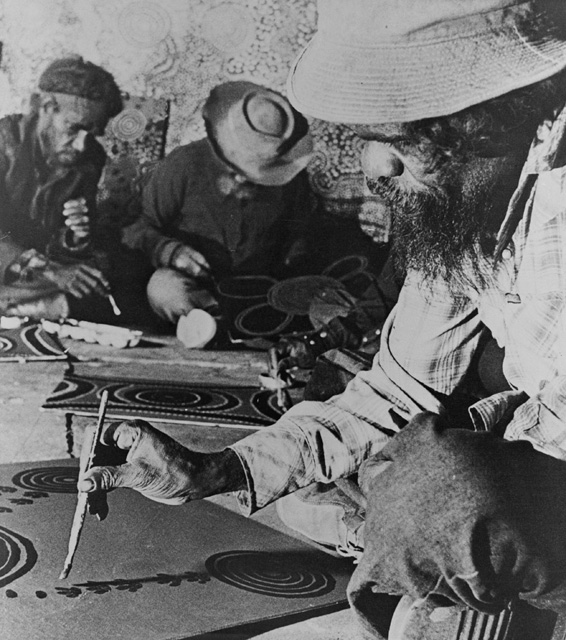
about 1938–92
Born in remote southern Pintupi country, Anatjari was one of the last of his people to leave their traditional lands. He was part of the original 1971 group of Papunya painters, and produced work of great precision. He moved to a settlement in Western Australia in the early 1980s and was based there for most of the decade. In the late 1980s, after a break from painting, he resumed work for Papunya Tula Artists. He had a solo exhibition in the United States of America in 1989, from which the Metropolitan Museum of Art purchased its first work by an Australian Aboriginal Western Desert artist.
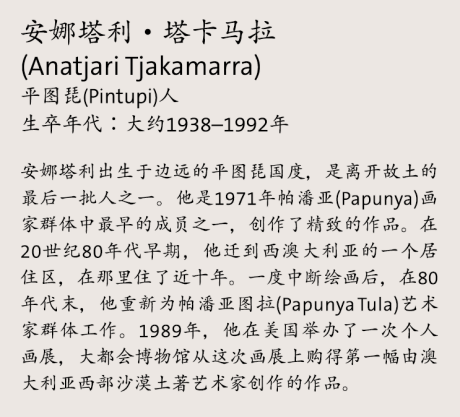
Possum Men of Yirtjurunya, 1974The story and song represented in this painting are part of the Tingarri ritual cycle in which initiated young men receive instruction during long periods of seclusion. Yirtjurunya is claypan country where the artist's maternal grandfather died. In the Dreaming, it was where the Native Cat Man met with a group of Possum Men. While the Possum Men were singing on their ceremonial grounds, which formed the claypans, the Native Cat Man appeared in ceremonial regalia. The Possum Men were terrified. The Native Cat Man roared and headed west using a high-stepping motion, making claypans as he went. |
|
Man Dreaming shield, 1972The concentric circles at the centre of this shield represent a water-filled rock hole. The diagonal lines indicate sacred objects the Tingarri Men had decorated on their way to the site and which were later stolen. When the thief came to the sacred rock hole he felt ashamed, which explains the literal meaning of the place name, as 'becoming-ashamed-place'. |
|
